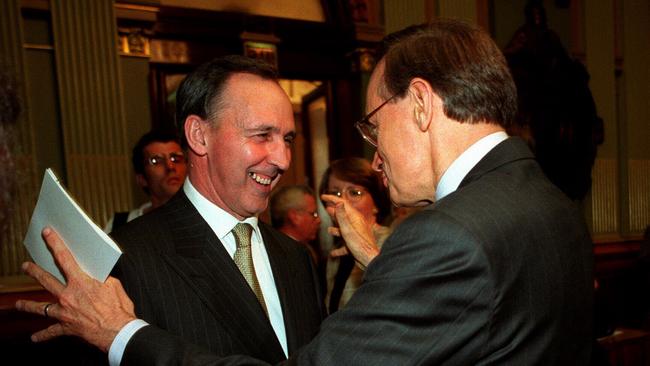
Former Foreign Minister and NSW Premier Bob Carr has declared that if all that Beijing “only” inflicted on Taiwan was what it has imposed on Hong Kong, “I could live with that”. Never mind what the people of Hong Kong and Taiwan could live with. He could live with it, he says.
He lives in a country with liberties he exercises and takes entirely for granted.
What extraordinary arrogance to state publicly and with nonchalance that the subjection of almost 24 million Taiwanese to suffocating dictatorship is something he could live with.
The most charitable possible gloss one could put on both sets of remarks is that both elder statesmen are deeply confused.
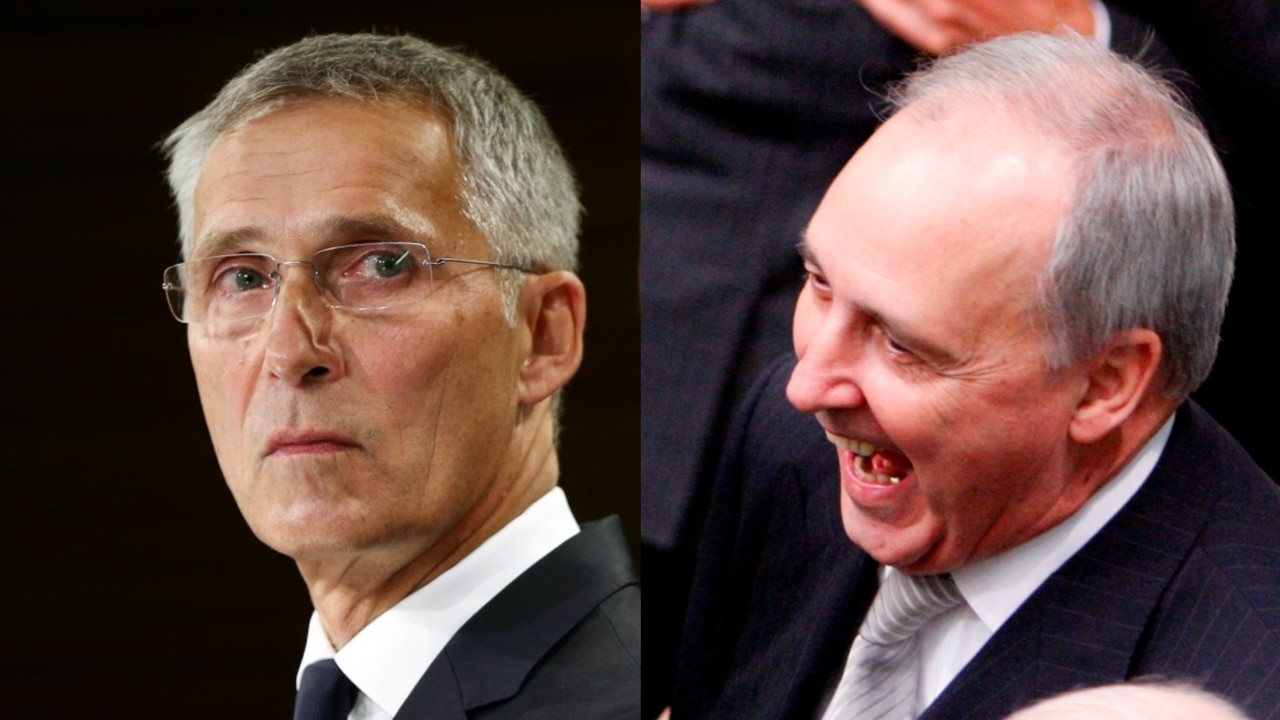
Neither, however, deserves charity. Both deserve severe censure – Keating most of all.
For years now, in a thoroughly undisciplined and abusive tone, he has taken the side of Beijing against all comers. This latest outburst – in which he called NATO Secretary General, Jens Stoltenberg, a “supreme fool”, described NATO as being “poisonous”, asserted that the involvement of NATO in the Indo-Pacific would be like an outbreak of “plague” and excoriated Europe for what he called three hundred years of war – is simply breathtaking.
His statement was issued in a press release from Potts Point on July 9. Hailing the decision by Emmanuel Macron to resist the involvement of NATO in Asia, he commented: “NATO’s continued existence after and at the end of the Cold War has already denied peaceful unity to the broader Europe … And besides, the Europeans have been fighting each other for the better part of three hundred years, including giving the rest of us two world wars in the last hundred. Exporting that malicious poison to Asia would be akin to Asia welcoming the plague upon itself …”
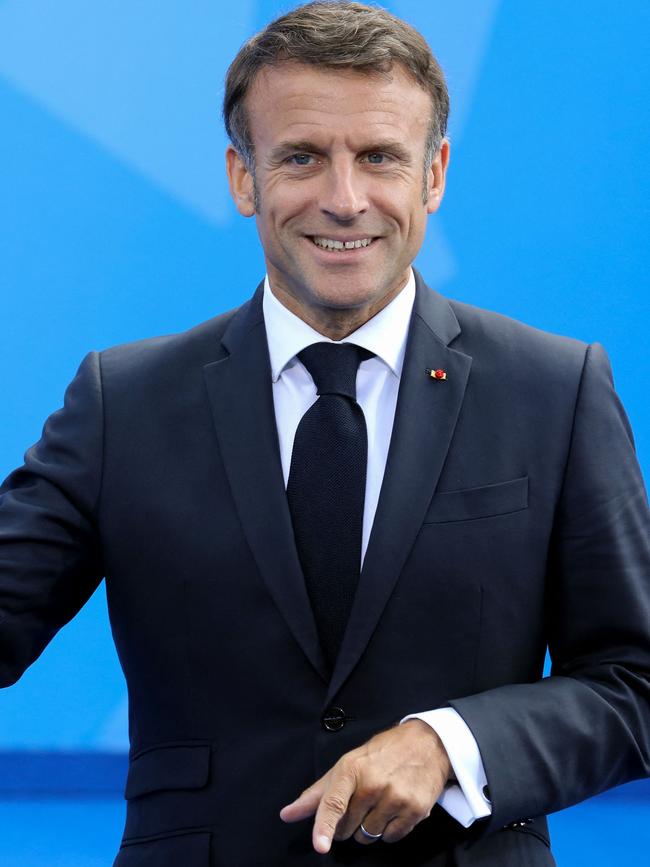
His remarks were welcomed by the Chinese Communist Party’s leading propaganda organ, The Global Times, which hailed him in glowing terms as “a visionary and insightful politician,” adding: “We highly agree with his statement. No one has criticised NATO more accurately and vividly than Keating … Inciting division and hatred, creating group confrontations, and causing chaos in Europe, they now seek to disrupt the peace in the Asia-Pacific region. We firmly resist this, together with the majority of countries in the Asia-Pacific region.”
So might Nazi Germany have lauded critics of Anglo-French rearmament in 1939-40 in the pages of its propaganda organ the Volkischer Beobachter. Note well that Keating gets published here as well. Don’t hold your breath for The Global Times to publish a rejoinder to Keating’s pro-Beijing blather. And, as for the countries of the Asia-Pacific, both Japan and South Korea, among its leading democracies, are at the NATO summit with Australia.
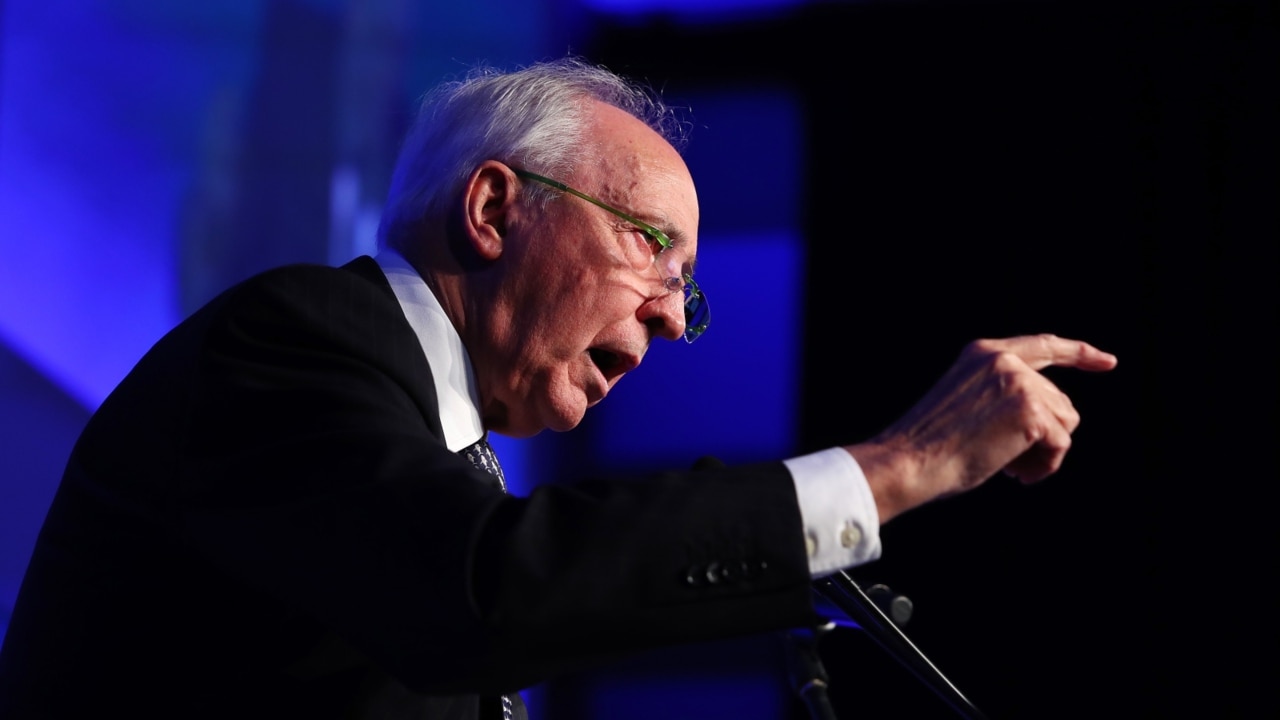
NATO did all it could to dissuade Russia from all-out invasion of Ukraine, whose borders and security were guaranteed by Russia at the end of the Cold War. It withheld membership of NATO from Ukraine (and Georgia) for fear of triggering conflict with Russia. It was formed in the first place as a defensive alliance to check Soviet expansionism.
The notion that it is responsible for the Russian invasion of Ukraine because, after the Cold War, it expanded eastwards is a pernicious fallacy. In 1944-45, the Soviet Union conquered eastern Europe, as well as the Baltic States, and imposed totalitarian communist regimes on all the countries it occupied.
When the Cold War ended, they sought membership of NATO, lest Russian aggression revive. If any proof was required that NATO is defensive in nature and not some US-orchestrated conspiracy to humiliate Russia, consider that both Finland and Sweden, neutral before and after the Cold War, have sought and been offered membership of NATO wholly because Putin’s Russia – a nasty dictatorship which seeks hegemony – has invaded and devastated Ukraine.
As for the so-called 300 years of warfare in Europe, Keating should be sent back to grade school for a history lesson on both Europe and Asia. To begin with, it is famously the case that, between the Treaty of Westphalia, in 1648, and the Napoleonic Wars (1803-1815), Europe was relatively stable and peaceful.
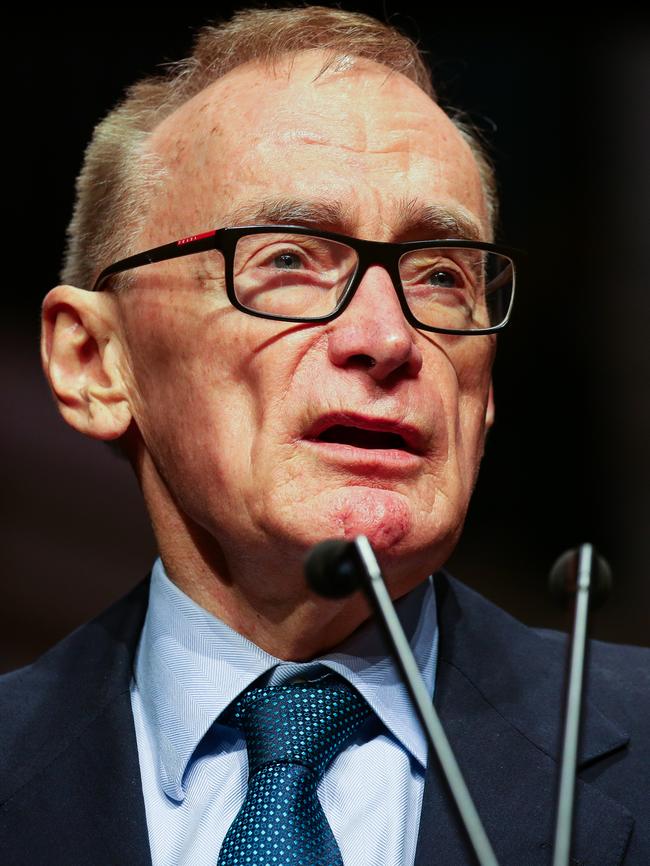
It was similarly stable again between 1815 and 1914. The two world wars were conflicts between aggressive powers seeking continental dominance and an alliance of liberal and conservative states seeking to check such dominance. The US stayed out of both wars as long as it could, but threw its weight into the scales and tipped them, from 1917 and 1941, respectively.
But more importantly, Keating seems to believe that Asia, during those same centuries and the two world wars was at peace. He needs to learn the history of the Qing dynasty, the Manchus, who conquered China in 1644, then conquered East Turkestan and Tibet, Mongolia and Taiwan, none of which had ever been part of the Ming empire, though the Ming had fought many wars.
He overlooks the fact that rebellions against the Qing dynasty – the White Lotus rebellion and the Taiping rebellion, in the 19th century – cost tens of millions of lives. He neglects to mention the Sino-Japanese War (1894-95) and Japan’s wars for Asia up to 1945. He omits the fact that, in both Europe and Asia, it was the United States which restored peace and carved out zones of stability and prosperity after 1945. Given all this, his remarks are nothing less than scurrilous.

As for Carr, in Hong Kong, anyone who comes close to differing with government policy, as he differs with the Albanese government’s policy, is being arrested and imprisoned, censored or forced to flee, or denounced as traitorous rats and having bounties put on their heads. Just ask Kevin Yam. But Bob can live with that for Taiwan as well as Hong Kong, he tells us. For shame, Mr Carr.
Paul Monk was head of the China desk in the Defence Intelligence Organisation when Paul Keating was prime minister. Bob Carr described him, in his Diary of a Foreign Minister, as “one of Australia’s best intellectuals – no, the best … leaping over the various divides and factional camps”. He is the author of Thunder From the Silent Zone: Rethinking China and Dictators and Dangerous Ideas.




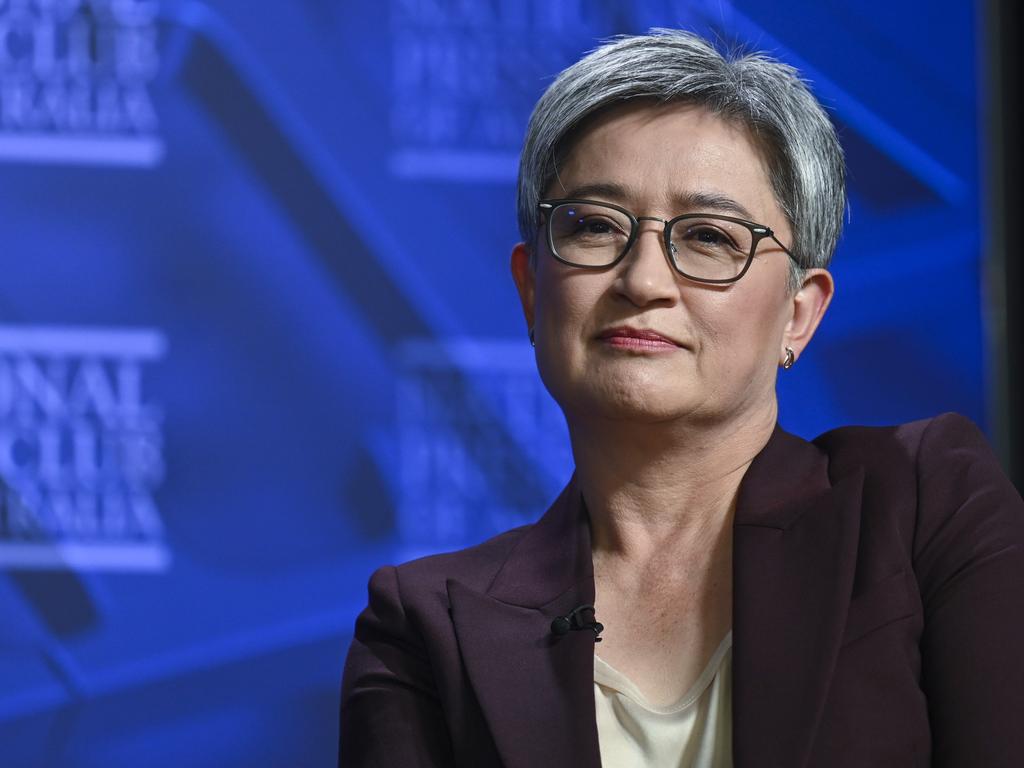



The recent vitriolic comments by Paul Keating about NATO were both shameful and deeply confused. He leads the pack of pro-Beijing voices in Australia, though he is not the only one who has made seriously out of balance comments lately.